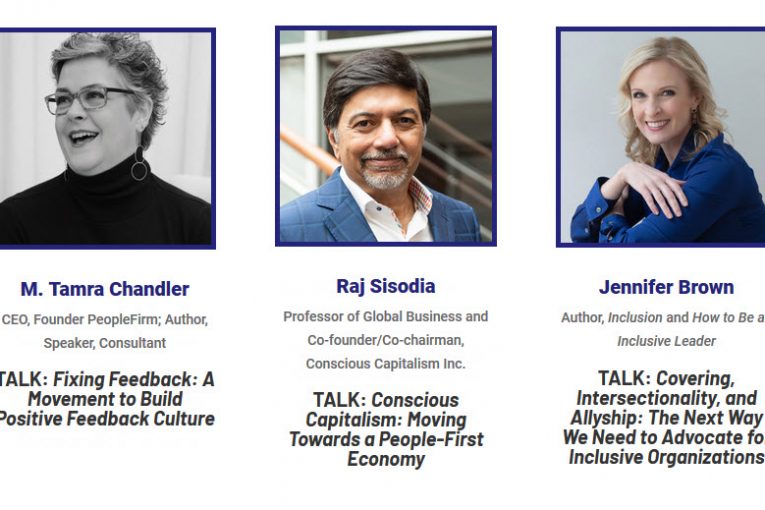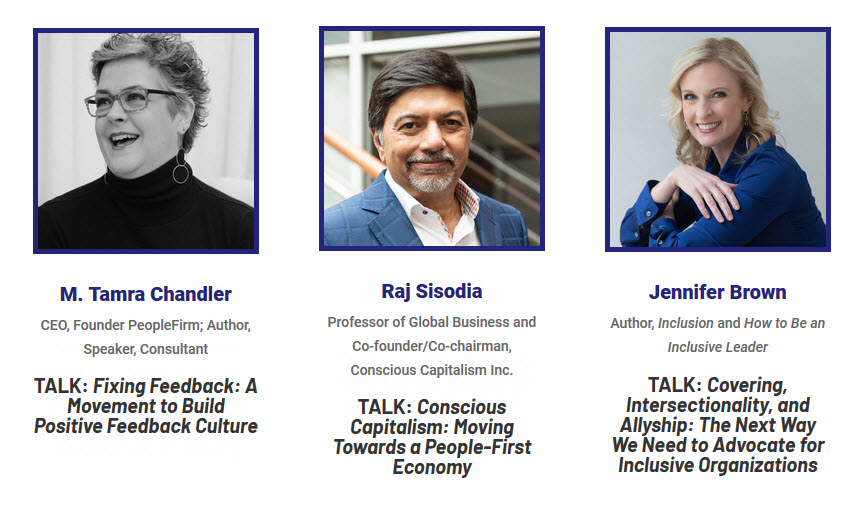

by Scott Steward
This is a mini review of the Day 3 of 10 People-First Economy Online (https://peoplefirsteconomyonlinesummit.com). I am providing a progressive economy menu for the reader to reflect on and choose from. The speakers are mostly concerned with intentional inclusive economy that turns away from waste stream fossil fuel dependence. I am learning from these speakers as well and offer my perspective on what the speakers have to say. Here are the 3 speakers from Day 3.
Jennifer Brown: “Covering, Intersectionality, and Allyship: The Next Way We Need to Advocate for Inclusive Organizations.” Jenifer is expert at understanding what it takes to make everyone valued, respected and heard in the workplace. She has studied what interrupts our sense of belonging and stifles the genius we can bring to the workplace. She recognizes that navigating our sense of safety in the workplace takes considerable energy. Fitting in with the perceived dominant culture can encourage people to submerge much of their whole selves. Not revealing, “covering” can be a an unconscious response to feeling vulnerable and can take a toll. Examples include, new parents not taking parental leave, not standing up for a causes, not joining a group or not hiring/supervising outwardly “similar” persons to yourself to avoid the impression of positive bias.
We all have our own diversity stories. There are multiple layers of diversity: primary diversity is what you are born with, acquired diversity includes parenting or educational experiences, organizational diversity is your title/position at work, there is also cultural diversity and era (historical identity) diversities. There is no end game to inclusion as all these diversities are forever evolving. It’s powerful to recognize that in the pursuit of inclusion equality is not a strategy, it is a goal. We are living in the age of the “Platinum Rule:” “Do unto others as they would have you do unto them.” Jennifer’s bonus: chapter 1 of “How to Be an Inclusive Leader”
M. Tamra Chandler: Fixing Feedback: A Movement to Build Positive Feedback Culture.” Tamra is the founder and CEO of PeopleFirm LLC. Tamra sees the struggles with feedback as a natural reaction. The anxiety around feedback is derived from our fear of isolation. This fear, and other fears, are commonly resident in the person “extending” the feedback as well as in the person receiving the feedback. In fixing feedback Tamra shows how flipping the feedback provider’s switch from “prove” to “improve” provides positive growth. Tamra instructs us to prepare our feedback with a mindset around the question, how is my feedback going to positively impact the person(s) to whom the feedback is directed? “If you’re not actually trying to help people thrive or grow then don’t provide the feedback.” Tamra’s catch phrases, such as, “kick some ask,” “positively negative” and “the fine art of noticing” are well designed memes for fixing feedback. The positive feedback fix emphasizes the “seeker” of  feedback and not the “extender” of feedback. Owning the power structure you belong to and modeling a positive feedback puts everyone on a people-first path. Tamra’s bonus: “The Fine Art of Noticing: 10 Commitments”
feedback and not the “extender” of feedback. Owning the power structure you belong to and modeling a positive feedback puts everyone on a people-first path. Tamra’s bonus: “The Fine Art of Noticing: 10 Commitments”
Raj Sisodia: “Conscious Capitalism: Moving Towards a People-First Economy.” Raj Sisodia is FW Olin Distinguished Professor of Global Business at Babson College, and Co-Founder and Co-Chairman of Conscious Capitalism Inc. “We are at a critical choice point” where violent reactions are brewing against the institutions of capitalism. Raj warns against such a reaction and adheres to the benefits of modern free market capitalism. Raj shows that prior to the last 300 years most of us earned less than $1 a day. After the 1700’s per capita income grew exponentially. I don’t think Raj intended to discount the value of destroyed natural systems , that were the livelihood of otherwise “poor” people, over the same period of capitalist acceleration. The listener/viewer can also decide if Professor Sisodia’s dismissive views about socialism are overstated as he explains the benefits of conscious capitalism and the evolution of business towards a people-first economy.
Raj and other historians see, the declaration of independence, the spread of freedom of choice in the 1700/1800s, as revolutionary. Following this era people have lived longer and became more literate than ever before. Raj credits these to gains in productivity to capitalism albeit with widely uneven distribution of benefits. All in all everyone has made more money since the 1700s, and yet confidence in business has been in decline since the early1970’s. Corresponding with the increase in distrust is a steady decline in return-on-investment. The origins of these declines coincide with wholesale conversion of business purpose to profit maximization in the 1970’s. Exclusive dedication to profit maximization along with extreme pay inequity and declining ROI all point to an economy that is not working for most Americans – “there is no buffer between most of us and finical ruin.”
Traditional businesses say “we are all about making money” and that anything else is irrelevant. This assertion, Raj says, is not only false it impoverishes the very advocates of traditional business. Compassionate company earnings outperform their competitors 7 to 1. Compassionate businesses have a purpose separate from making money, they create value for all stakeholders, they have conscious leadership and a caring fun culture – not one of fear and stress. Compassionate companies don’t have high employer turnover, they don’t need lots of marketing, they don’t need a lot of management as “everyone wants to do their job.” Compassionate companies will make up the conscious capitalism people first economy. Raj’s bonus: “Three Principles that Define a Healing Organization” chapter.






Yeah . . . I . . . um . . . blunkie . . dill . . .
That is a really, really bad rule to follow — even dangerous.
There was that little blip of distrust in the 30’s.
Still not as bad as the 30’s — when financial ruin was the rule, not just the lack of a buffer.